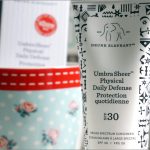
Tips on sunscreen protection & application

One of the skincare products that I take a lot of interest in is the sunscreen. I’m always interested to find out more and here are ten tips I’ve put together based on what I’ve found to be interesting information regarding sunscreen formulations and their application.
1. Are chemical sunscreens better than physical sunscreens?
Chemical sunscreens use organic absorber to absorb UV rays and invalid the damage of UV achieving a full blockage of a broad spectrum UV rays, with some even reported to retain their efficacy on human skin for up to 8 hours. However, you need to take note that components in chemical sunscreens, which include oxybenzone, avobenzone (Parsol 1789) may be detrimental in certain instances and the fact that avobenzone degrades about thirty minutes after application. If you want good chemical sunscreens, choose those European brands with Mexoryl and Tinosorb as they offer superior protection according to this study.
However, if you’re concerned about product safety or you have sensitive skin, then pick physical or mineral-based sunscreens which are those that use titanium dioxide or zinc oxide to reflect or scatter UV radiation before it reaches our skin, although you want to know that large particles may not reflect every UV rays for full protection. In addition, between zinc oxide and titanium oxide, the former is a more superior sunscreen ingredient (source).
Update:
I’m adding this chart that I obtained from the Environmental Protection Agency for reference which tells you at a glance the different chemical and physical sunscreen ingredients as well as the type and amount of ray protection that they provide and their class.

Whichever type you pick, always ensure that your sunscreen is broad spectrum and offers protection against both UVA and UVB rays. UVB rays are the primary cause of skin cancer while UVA rays cause wrinkling, skin sunspots and are also now implicated in skin cancer.
2. Is a sunscreen with higher SPF better?
I have addressed this before and indicated that studies have shown that products with a SPF over 50 do not provide any significantly better protection than one over 30 because when applied properly, an SPF 15 filters out 93 percent of UVB, SPF 30 filters 97 percent and SPF 50 filters 98 percent. Thus for daily usage when you do come into contact with some amount of sun exposure, an SPF 30 formula is good enough.
However, there is an advantage of picking a higher SPF sunscreen because most people are likely getting a significantly lower SPF level because they’re usually not applying enough (see next tip for application amount). But please note that a 15 SPF facial moisturizer plus a 15 SPF facial sunscreen does not equal 30 SPF. It’s still just 15 SPF.
3. How much sunscreen should I apply on my face and my body?
1/4 to 1/3 of a tsp of sunscreen is apparently adequate for our face, as I have examined here. For the rest of our body, I understand it is 1/2 tsp to each arm, 1/2 tsp each to the front and back of our torso, and 1 tsp to each leg.
4. Do I need to apply moisturizer before my sunscreen?
Check your sunscreen formulation. Unless your skin is very dry, some of the formulations are pretty emollient and it may not be necessary to apply a moisturizer before applying your sunscreen.
In addition, note that a chemical sunscreen should go on clean, bare skin first and you need to give it time to be absorbed, because in order to be effective, it must interact with skin cells. On the other hand, a sunscreen with a physical block like titanium dioxide or zinc oxide can be applied last, after a serum or moisturizer.
5. Do moisturizers or mineral makeup with SPF provide adequate UV protection if used on their own?
Yes, if you use the required dosage of 1/4 to 1/3 tsp on your face. But this isn’t feasible as it would mean your makeup would be too thick. So, it is still better to use a sunscreen. Also consider the compatibility of your sunscreen with your makeup and it is best not to layer non-micronized mineral makeup with an avobenzone containing chemical sunscreen.
6. How long should I wait to apply foundation or makeup over my sunscreen?
Technically, it is best to wait 20 minutes after applying a chemical sunscreen before putting on your foundation or makeup because it takes that length of time for sunscreens to optimally distribute themselves within the stratum corneum (horny outer layer of the epidermis). However, in reality, this may not be feasible especially in the mornings when we’re rushing for time. So do some time management if you wish to optimize your sunscreen. Otherwise, use a physical sunscreen because they are effective immediately upon application.
7. How frequent do we need to reapply sunscreen on a normal day-to-day basis?
Sunscreen needs to be reapplied every two hours to remain effective, especially when you’re exposed to strong sun rays. But on a normal daily basis, my dermatologist has recommended that we should all try to re-apply at least once in the midday. For those of us wearing makeup, I suppose using one with SPF and reapplying often would be helpful in this case.
8. Do I need sunscreen even though I stay indoors most of the time and if so, what SPF do I use?
UVA rays can penetrate the windows so it’s important to wear a sunscreen even if you’re indoors and wearing one with at least an SPF 15 should give you sufficient protection.
9. Do I need to apply sunscreen even when it’s cloudy, raining or snowing?
Yes, wear your sunscreen rain or shine and even during winter because UV rays can penetrate clouds, mist and fog as well as get reflected on snow by up to 80%.
10. What’s the difference between a sunscreen that is water resistant and a sunscreen that is waterproof?
According to the FDA, sunscreens labelled as water resistant must maintain their SPFs after 40 minutes of being submerged in water while sunscreens labelled as waterproof must maintain their SPFs after 80 minutes.
Of course there are a lot more information you can find out about sunscreens. I have put these together based on my own experience plus common concerns I have gleened from the various resources such as this very useful FAQ at Makeupalley. And do note that you’ll still need to conduct your own risk-benefit analysis when selecting the right sunscreen for yourself, especially taking into consideration your skin type, age group, lifestyle and safety concerns. Most importantly, you have to pick one with a texture, finish and scent you really like because it’s going to stay as part of your daily skincare regimen.
Comments
Leave a Reply
You must be logged in to post a comment.

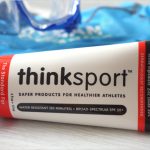











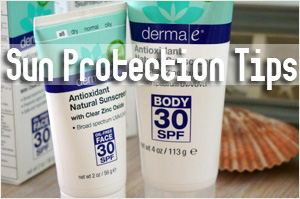
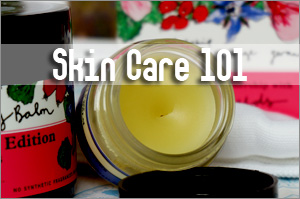

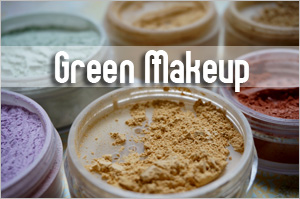
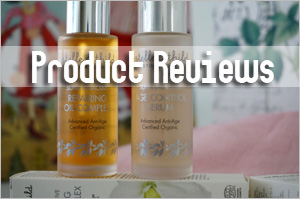

m a guy wid gud fair complextion.but i m suffering from pretty gud sunburn although m not much exposed to the sun.but the lil exposure on way to colg from hostel and return for the past 2 years have resulted in a black layer over my original skin.parts of feet which r covered by sandals r wid gud complextion and rest have undergone sunburn.tell me which brand is gud and what spf.i have oily skin.
mrityunjay: It’s quite hard for me to recommend you which brand is good. Sometimes it’s a trial and error process. If you’re into chemical sunscreens, maybe you can try those under La Roche-Posay that contains Mexoryl. For physical sunscreens, I’ve learnt that Blue Lizard has a range of effective sunscreen but I’ve personally not tried them though.
Most sunscreens have an oily base. Those that don’t tend to contain alcohol, which can be drying for you skin long term.
This is the best informative article on sunscreen that I have come across so far.It is very comprehensive.Thanks.
You’re welcome!
Sesame, whats your routine for applying SS?
I’m currently using Neutrogena UltraSheer Dry-Touch SPF50+ (recommended by my derma). However when i wanna apply loose powder + concealer, it seems cakey & usually the morning rush doesnt allow me to wait for 20mins.
Any suggestions/recommendations? ?
I couldn’t find the full ingredient list online but it sounds like it is too dry for you. Do you apply any moisturizer or oil underneath or over?
I now use an anti-aging oil before applying my sunscreen. It has been perfect for me. Before that, I applied sunscreen alone but because of the high active sunscreen ingredient, my skin sometimes felt slightly tight in the day.
Neutrogena is more of a chemical sunscreen so yes, best to wait for awhile before applying makeup. However, since you’re using it to protect you mostly against casual sun exposure, it should be all right.
Ic.
Or, any other SS that you can recommend?
Not too sticky/oily.
How about the Shiseido ones? Heard good reviews about them.
Shiseido is okay but still a bit greasy after a few hours for my combination skin. If you want texture that is close to Neutrogena, I would recommend you to look at those from La Roche Posay. Here are some of my reviews along with one from a guest reviewer:
https://www.vivawoman.net/2008/04/09/sunscreens-capital-soleil-vs-anthelios-xl/
https://www.vivawoman.net/2009/03/03/anti-pigmentation-la-roche-posay-uvidea-xl/
I suspect La Roche-Posay Anthelios XL SPF 50+ Fluide Extreme For Face might be quiite close to Neutrogena’s.
Thanks alot for such great advice, Sesame! ?
You’re welcome. ? I hope you can find a suitable sunscreen soon.
Hi Sesame,
If i use a day cream with sunscreen in it and also foundation with sunscreen in it do they counteract? I Heard this from a makeup person.. true or false?
It depends on the ingredients but generally, I doubt so. The foundation should have lower sun protection and so it’s not the sunscreen ingredients. It could be other ingredients within the foundation but in that case, even those without SPF would be a problem. What I know is mineral foundation did pose a problem some time back but that’s like very limited.
Hi sesame! i have two qns to ask..firstly, how much shld I apply fluid type sunscreen to my face? secondly,can I use grapseed oil and then my la rosche posay fluid extreme fluid sunscreen ( as im scared alcohol in the sunscreen might be drying for me) ?thank you
A quarter teaspoon thereabout. Yes, you can use grapeseed oil before your sunscreen.
Every time I use a sunscreen on my face, even ones specially formulated for acne prone oily skin, I break out, and my face becomes an oil slick by noon! Do you recommend any facial sunscreens that won’t break the bank?
Check out Badger’s range. They have some good ones that are really affordable. The Aloe Vera formulation is quite light.